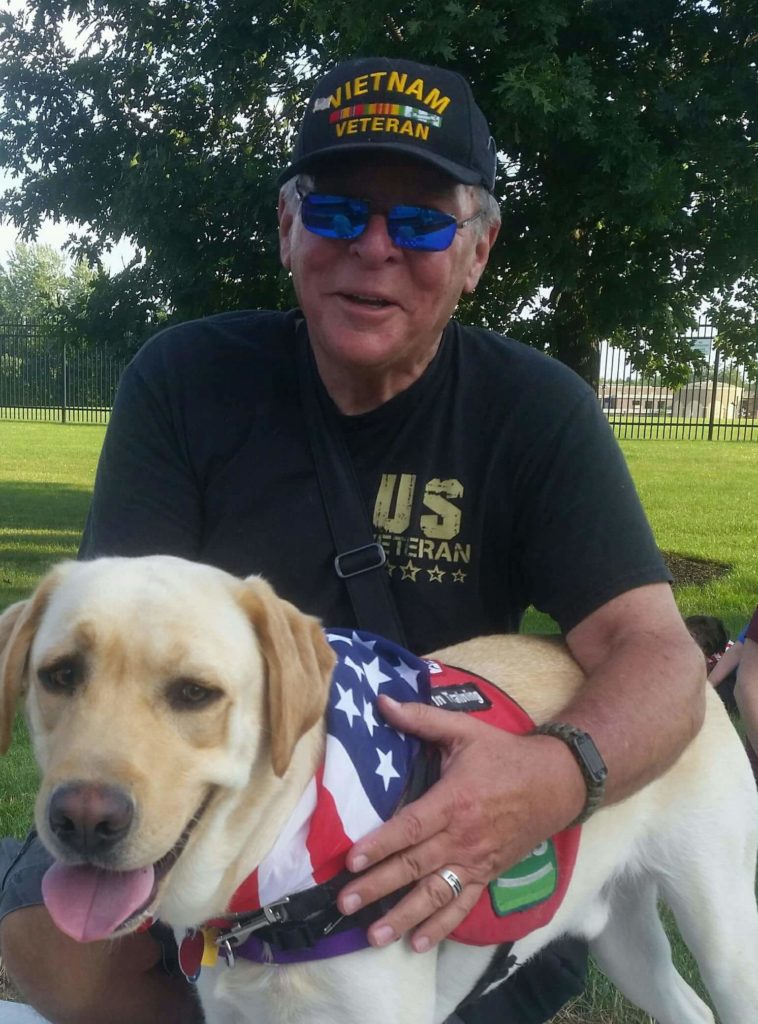
How Service Dogs Can Help Veterans
Veterans returning home from service have access to a variety of support options to aid in their transition to civilian life. One increasingly popular form of assistance is the use of service dogs, which can provide crucial help for mobility challenges, sensory impairments, PTSD, and other mental health conditions. Service dogs can help make the transition of returning to civilian life much easier on veterans by providing them with around-the-clock support and comfort, as well as helping them with simple, everyday tasks.
PTSD Assistance
Many veterans returning from military service struggle with post-traumatic stress disorder (PTSD), making the transition to civilian life particularly challenging. PTSD, which affects roughly one in seven adults according to the American Psychiatric Association, is especially prevalent among military members due to the intense and often traumatic experiences they endure during service. Common symptoms include anxiety triggered by specific environments, flashbacks, avoidance behaviors, hypervigilance, and nightmares. While treatments such as medication and therapy remain standard, service dogs have emerged as another form of support for managing PTSD symptoms in veterans. These specially trained animals can interrupt anxiety episodes, provide physical comfort, create personal space in crowded settings, assist with hypervigilant behaviors, and even wake their handlers from nightmares. They can also help ground their handler during flashbacks or dissociative episodes by nudging or licking, providing a calming and physical presence that helps reorient the veteran to the present. In public spaces, service dogs are trained to “watch their handler’s back,” easing hypervigilance by providing a sense of security. They can be taught to enter rooms first, turn on lights, and create physical boundaries between the veteran and others in crowded environments. This helps reduce stress and prevent overstimulation. Among all the services they provide, one of the most frequently utilized and effective tasks is calming the veteran during anxiety-induced episodes, which can significantly improve day-to-day functioning and quality of life.
Mental Health Assistance
Service dogs can provide veterans with an added layer of companionship that they may seek once returning home. This will help prevent experiencing feelings of loneliness. Dogs trained to assist with mental health issues can also help with a large variety of mental health conditions outside of PTSD symptoms. They can be trained to help prevent panic attacks caused by panic disorders and can help treat depression. Research shows that service dogs have the ability to reduce the stress hormone, in turn reducing many symptoms connected to PTSD and many other mental health issues like panic attacks. In many cases, when veterans return home with mental health issues, the first line of defense is typically therapy and then medication. Service dogs provide a more holistic option rather than increasing doses of medication.
Mobility Assistance
While some soldiers returning home suffer from mental health related issues, physical limitations may also be a consideration as a result of deployment. Service dogs can be trained to assist those with mobility limitations by picking up dropped items, opening or closing doors, or helping with overall stability. They can help veterans with everyday tasks that may seem minor, but can be difficult upon their return. By reducing the need for constant human assistance, service dogs empower veterans to move more freely in their daily lives, promoting greater self-reliance. Experiencing issues with mobility can often compound, leading to mental health issues like depression. Having a service dog in one’s life can act as a preventative measure to ensure veterans are getting the help they need before it may become a larger issue.
Sensory Assistance
A common reason people consider using service dogs is for sensory issues involving visions or hearing. Service dogs can be grounding for people with sensory issues and give them the assurance they need knowing they can rely on the dog, especially in overwhelming public settings. They can also be taught other ways to alert veterans that suffer from hearing loss to important sounds in their environment, like doorbells, alarms, or approaching vehicles, or helping them navigate safely and confidently in their environment if they are visually impaired. This can be very beneficial in public settings when not having the ability to hear can become a safety concern.
How UDS Can Help
Service dogs are loyal companions that offer far more than affection—they play a crucial role in assisting with anxiety, panic attacks, navigation, guidance, item retrieval, medical emergencies, and emotional support. From puppyhood until they are at least two years old, our service dogs undergo extensive training led by a team of committed volunteers and professionals to prepare them for this important work. If you are interested in a service dog for you or your loved one, you can get more information on them on the service dog page. UDS also offers a variety of options for volunteering with the service dogs. We pride ourselves on being with you every step of the way and making ourselves available for any questions and guidance. UDS serves most of eastern and central PA. For more information, please contact us and fill out your information to learn more about our services.